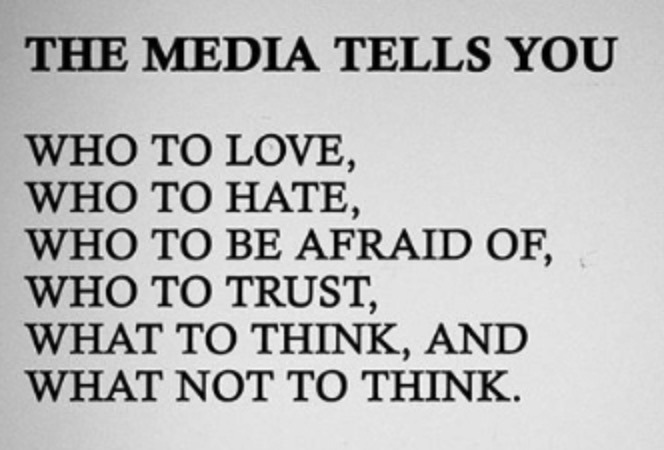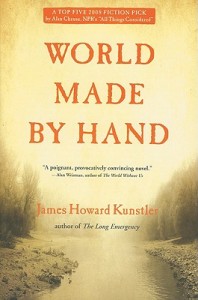A review of How to Be a Dictator: The Cult of Personality in the Twentieth Century by Frank Dikötter, Bloomsbury Press (December 2019) 304 pages
 One of the first things to emerge from Professor Frank Dikötter’s eagerly awaited new book How to Be a Dictator is that it is a stressful vocation: there are rivals to assassinate, dissidents to silence, kickbacks to collect, and revolutions to suppress. Quite hard work. Even the most preeminent ones usually meet ignominious ends. Mussolini: summarily shot and strung upside down over a cheering crowd. Hitler: suicide and incineration. Ceausescu: executed outside a toilet block. Or consider the fate of Ethiopia’s Haile Selassie: rumoured to have been murdered on orders of his successor Mengistu Haile Mariam, he was buried underneath the latter’s office desk. Not the most alluring career trajectory, one might say.
One of the first things to emerge from Professor Frank Dikötter’s eagerly awaited new book How to Be a Dictator is that it is a stressful vocation: there are rivals to assassinate, dissidents to silence, kickbacks to collect, and revolutions to suppress. Quite hard work. Even the most preeminent ones usually meet ignominious ends. Mussolini: summarily shot and strung upside down over a cheering crowd. Hitler: suicide and incineration. Ceausescu: executed outside a toilet block. Or consider the fate of Ethiopia’s Haile Selassie: rumoured to have been murdered on orders of his successor Mengistu Haile Mariam, he was buried underneath the latter’s office desk. Not the most alluring career trajectory, one might say.
Dikötter’s monograph is a study of twentieth century personality cults. He examines eight such cults: those created by Mussolini, Hitler, Stalin, Mao, Kim Il-sung, Duvalier, Ceausescu, and Mengistu. For them, cultism was not mere narcissism, it was what sustained their regimes; foregoing cultism, Dikötter argues, caused swift collapse. Consider Pol Pot and the Khmer Rouge. Cambodians were unsure of Pol Pot’s exact identity for years, even after he had assumed leadership of the country. The Khmer Rouge, meanwhile, was in its initial stages merely called “Angkar”—”The Organisation.” There was no inspiring iconography. There was no ritualised leader worship. There was only dark terror. Dikötter quotes historian Henri Locard: “Failing to induce adulation and submissiveness, the Angkar could only generate hatred.” The Khmer Rouge soon lost its grip on the country. Dikötter makes an obligatory reference: “Even Big Brother, in George Orwell’s 1984, had a face that stared out at people from every street corner.”
Readers of Orwell will remember that INGSOC has no state ideology. There is only what the Party says, which can change from hour to hour. Likewise, Dikötter argues, there was no ideological core to twentieth century dictatorships; there was only the whim of the dictator. Nazism, for example, was not a coherent creed. It contained antisemitism, nationalism, neo-paganism, etc., but its essence was captured in one of its slogans: The Führer is Always Right. That is what the creed amounted to. Indeed, the NSDAP referred to itself simply as “the Hitler movement.” Nazism was synonymous with Hitlerism. Italian Fascism was perhaps even more vacuous. The regime’s slogan was simple: Mussolini is Always Right. Explaining his method of politics, Mussolini said: “We do not believe in dogmatic programmes, in rigid schemes that should contain and defy the changing, uncertain, and complex reality.”
While it is uncontroversial to argue that Nazism and Fascism were without ideology, as Dikötter writes, the “issue is more complicated with communist regimes.” Naturally, Marxism was connected with Stalin, Mao, Ceausescu, Kim, and Mengistu. But Dikötter rightly says that it was Lenin’s revolutionary vanguard, not Marx’s philosophical works, that inspired them. Doctrines can be interpreted in contradictory ways, creating schismatic movements—as shown throughout the history of socialism. In this regard personality cults are far safer because they are substantively empty. Marxist dictators thus subverted Marxism. Engels had said that socialism in one country was impossible, but that is what Stalin’s Soviet Union favoured. Or consider Kim’s North Korea, which in 1972 replaced Marxism with Great Leader Thought. And as Dikötter writes, “Mao read Marx, but turned him on his head by making peasants rather than workers the spearhead of the revolution.” Reading Marx under Marxism, Dikötter says, was highly imprudent: “One was a Stalinist under Stalin, a Maoist under Mao, a Kimist under Kim.” In short, Marxism was whatever the dictator said, and not what Marx had actually written.
Reading one account of tyranny after another creates echoes. “If only the Duce knew” was a common expression in Italy. “If only Hitler knew” was repeatedly said in Germany. And in Romania complaints of shortages took this form, “if only Ceausescu knew about the situation, he would attack the shopkeeper with an iron broom.” Sycophantic supporters were always ready to assume responsibility for failure. Dictators were portrayed as omnipotent and omnibenevolent, as such they stood above criticism. Here one notices the resemblance with theodicy, which seeks to free God from responsibility for suffering. This resemblance is not coincidental. Dictators and their propagandists actively made use of religious imagery and rhetoric. Some of them even anointed themselves God.
Deity-envy came in various forms: some merely made use of pseudo-religious imagery while others claimed actual divine status. The Nazis made opportunistic use of Christian symbolism. Hitler certainly thought he was acting in accordance with providence. Goebbels staged mass-prayers for his Führer. Meanwhile, in Italy, much like ancient Roman emperors were revered as divine, Mussolini portrayed himself as a demi-god. Stalin, though he stopped short of announcing himself divine, clearly envied the deification of Lenin. Ceausescu, however, thought it fitting to pay for a biography of himself entitled The Demi-God of Romania. Defending his personality cult, Mao asked: “What’s wrong with worship?” Notoriously, Kim Il-sung is still president of North Korea, which makes it a “mausolocracy” or “necrocracy,” as the late Christopher Hitchens liked to observe. Upon his death, Kim was pronounced “eternally alive”; in a great hurry, cities all over the country constructed “towers of eternal life” through which his spirit is said to communicate.
No one, not even Kim, could rival Duvalier. Worshipping a fellow human being is always ridiculous, especially when that person is Francois “Papa Doc” Duvalier. Viewed from a distance there is something inescapably comical about Duvalier’s deity-envy. Dikötter informs us that “Duvalier wore thick, dark spectacles, and occasionally appeared in public with a top hat and tailcoat. He would mumble mysteriously in a deep nasal tone, as if chanting incantations against his enemies.” He was affecting the appearance of a Voodoo houngan. Only his exalted rhetoric could match his strange style. Here he assumes the immanent spirit of New Haiti:
I am the New Haiti. Those who seek to destroy me seek to destroy Haiti itself. It is through me that Haiti breathes; it is through her that I exist … God and Destiny have chosen me.
On 1 April 1964, with uncharacteristic modesty, he said: “I am an exceptional man, the kind the country could produce only once every 50 to 75 years.” (He was right about being special, but perhaps not in the way he intended.) The year before he had pronounced himself “immaterial”: “Bullets and machine guns capable of frightening Duvalier do not exist,” Duvalier announced, for “I am already an immaterial being.” Quite often, he simply said that he was God. Other times he elaborated: “I want to tell you today that your Chief is considered the Living Sun by blacks throughout the world.” Naturally, these words were prefaced with “without indulging in any narcissism and without any sense of superiority.”
Were these Gods popular? Yes, to an extent. Cults are, after all, captivating for the credulous. Sebastian Haffner famously estimated that 90 percent of Germans supported Hitler. Dikötter disagrees. Quoting Viktor Klemperer: “Who can judge the mood of eighty million people, with the press bound and everyone afraid of opening their mouths?” The Nazis expected more than half a million spectators for a speech Hitler gave in Munich, but only 200,000 came. Most of these, Dikötter writes, “had been frogmarched to the event from neighbouring enterprises and factories.” Mussolini’s popularity also waned towards the end of the 1930s. Believing that some swift military victories could swell his support, Mussolini entered the Second World War. This made him even more unpopular. Dikötter writes: “The letter M, seen everywhere in honour of Mussolini, stood for misery, people joked.”
Cultism is Theatre: it contains both Tragedy and Comedy. Mussolini saw himself as Italy’s greatest actor. “In the evenings he would sit in a comfortable chair in a projection room to study every detail of his public performance,” Dikötter writes. Mere months before Mussolini died, he said: “I await the end of the tragedy and—strangely detached from everything—I do not feel any more an actor. I feel I am the last of the spectators.” Hitler, too, thought himself an actor—Europe’s greatest even. Coerced into acting, people soon learned their roles: when to cheer, smile, wave, and salute. Everything was scripted. Nothing was spontaneous. When Ceausescu spoke, the silence was so embarrassing that the regime played recorded sounds through loudspeakers to compensate for it. Only the security forces—in civilian clothing—waved enthusiastically. Dikötter tells us of a man who, following Mao’s death, grieved greatly in public, but in private shared a bottle of wine with his friends in celebration.
Dikötter opens How to Be a Dictator with William Makepeace Thackeray’s satirical image of the Sun King, Louis XIV. It portrays the King with and without his royal robes. With them, he is magnificent; without, his human frailty is revealed. Thackeray’s satire trades on the discrepancy between the image and reality of absolutism. Supreme confidence is projected, but although dictators often deluded themselves into believing this projection, they were dithering and insecure. Hitler suffered from a trembling left-hand, something Dikötter says “no doubt contributed to his reluctance to appear in public.” The tremors grew increasingly severe as the war progressed. In a Thackerayan moment, Hitler’s secretary noted, as Dikötter paraphrases, that Hitler “believed that an iron will could prevail over everything, yet was unable to master his own hand.” Here we see the distance between the image of God and the reality of Man. Drunk on his own delusion, Hitler miscalculated. In this respect, he resembled other dictators. Having made themselves into absolute rulers, surrounded themselves with sycophantic followers, everything relied on them; but only Gods can be infallible. Dikötter closes his book with the following reflection:
As hubris and paranoia take over, they seek more power to project the power they already have. But since so much hinges on the judgements they make, even a minor miscalculation can cause the regime to falter, with devastating consequences. In the end, the biggest threat to dictators come not just from the people, but from themselves.
Gustav Jönsson is an undergraduate philosophy student at the University of Glasgow.
The post How to Be a Dictator—A Review appeared first on Quillette.
via IFTTT
InoreaderURL: SECONDARY LINK
















